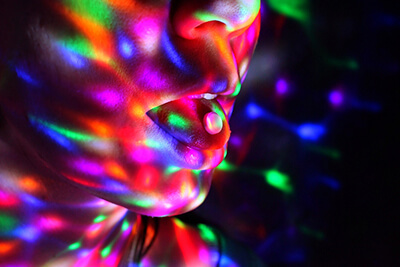Ecstasy, also known as MDMA, has been a popular recreational drug for decades. It produces feelings of euphoria and increased energy, as well as heightened senses and feelings of empathy. But is it addictive? In this article, we’ll explore the potential for addiction to ecstasy and the risks associated with using it. We’ll look at the scientific evidence on the addictive nature of ecstasy, as well as the potential physical and psychological effects of chronic use. By the end of this article, you’ll be better informed about the dangers of ecstasy and more aware of the potential for addiction.

What Is Ecstasy?
Ecstasy (MDMA) is an illegal drug that is known for its energizing and euphoric effects. It is a synthetic drug that is classified as a stimulant and hallucinogen and is commonly used at raves and nightclubs. Ecstasy is often referred to as “molly” or “ecstasy” and is typically taken in pill form, although it can also be smoked, snorted, or injected.
What Are the Risks of Taking Ecstasy?
The short-term effects of ecstasy include an increase in energy, pleasure, and mental alertness. It can also cause physical side effects such as increased heart rate and blood pressure, nausea, blurred vision, muscle tension, chills, and sweating. Long-term effects of ecstasy use include memory problems, depression, anxiety, confusion, and insomnia.
Is Ecstasy Addictive?
Although ecstasy is not considered to be as addictive as other drugs, it can still lead to compulsive use and the development of a substance use disorder. The more frequently a person uses ecstasy, the more likely he or she is to become dependent on it.
What Are the Signs of Ecstasy Addiction?
The signs of ecstasy addiction include an increased tolerance to the drug, withdrawal symptoms when the drug is not taken, and the inability to stop taking the drug despite the negative consequences. Other signs of addiction include spending a large amount of time obtaining and using the drug, social or occupational problems due to drug use, and cravings for the drug.
What Are the Treatment Options for Ecstasy Addiction?
The treatment for ecstasy addiction typically includes a combination of medication and therapy. Medications such as antidepressants and anti-anxiety medications are often used to help manage the symptoms of withdrawal and reduce the risk of relapse. Therapy can help a person understand their triggers for drug use and develop strategies for dealing with them.
Where Can I Find Help for Ecstasy Addiction?
If you or someone you know is struggling with an addiction to ecstasy, there are several resources available to help. Treatment centers, support groups, and individual therapists can all provide assistance and support. Talking to a doctor or mental health professional can also be beneficial.
Top 6 Frequently Asked Questions
Q1. Is Ecstacy Addictive?
A1. Yes, ecstacy is addictive. Ecstacy is a synthetic drug that causes a sense of euphoria and heightened energy. It affects the brain’s reward system, releasing large amounts of serotonin and dopamine which can lead to compulsive drug-seeking behavior. Regular use of ecstacy can lead to tolerance, cravings, and withdrawal symptoms, all of which are hallmarks of addiction. Long-term use of ecstacy can also lead to depression and anxiety, further increasing the risk of addiction.
Q2. What are the Risk Factors for Ecstacy Addiction?
A2. There are several risk factors for developing an addiction to ecstacy. Those with a family history of addiction are more likely to become addicted to the drug. Additionally, those who use the drug in high doses or for long periods of time are at a greater risk of developing an addiction. People who use ecstacy with other drugs, such as alcohol, are also more likely to become dependent on the drug.
Q3. What are the Signs of Ecstacy Addiction?
A3. The signs of ecstacy addiction can vary from person to person, but there are some common signs to look out for. Someone who is addicted to ecstacy may experience cravings, increased tolerance, and withdrawal symptoms when they stop taking the drug. They may also display signs of depression or anxiety, and may become socially isolated. Other signs include changes in sleep patterns, changes in appetite, and neglecting responsibilities.
Q4. What are the Long-Term Effects of Ecstacy Abuse?
A4. Long-term abuse of ecstacy can cause a wide range of physical and mental health problems. Physically, ecstacy can lead to dehydration, increased heart rate, and seizures. It can also cause cognitive problems, including memory loss and difficulty concentrating. Additionally, long-term abuse of ecstacy can increase the risk of developing depression, anxiety, and addiction.
Q5. How is Ecstacy Addiction Treated?
A5. Treatment for ecstacy addiction typically involves a combination of medication and psychotherapy. Medication can be used to help reduce cravings and treat withdrawal symptoms. Psychotherapy can help the individual address the underlying issues that led to the addiction and provide them with the tools they need to maintain sobriety. Additionally, group therapy or support groups can provide a sense of community and accountability for those in recovery.
Q6. What Can I Do to Prevent Ecstacy Addiction?
A6. The best way to prevent ecstacy addiction is to avoid using the drug altogether. If you or someone you know is already using ecstacy, it’s important to seek help as soon as possible. Additionally, it’s important to be aware of the risk factors for addiction, such as family history, and to be aware of the signs of addiction. Finally, if you or someone you know is struggling with addiction, there are resources available to help.
Is Ecstasy Addictive?
In conclusion, Ecstasy is an incredibly addictive drug, and its effects on the body are both short-term and long-term. The drug has been linked to serious health issues, including memory problems, depression, and even death. While it may seem like a harmless way to have a good time, the long-term consequences of Ecstasy can be severe. For this reason, it is important to be aware of the risks associated with this drug and to avoid using it.

